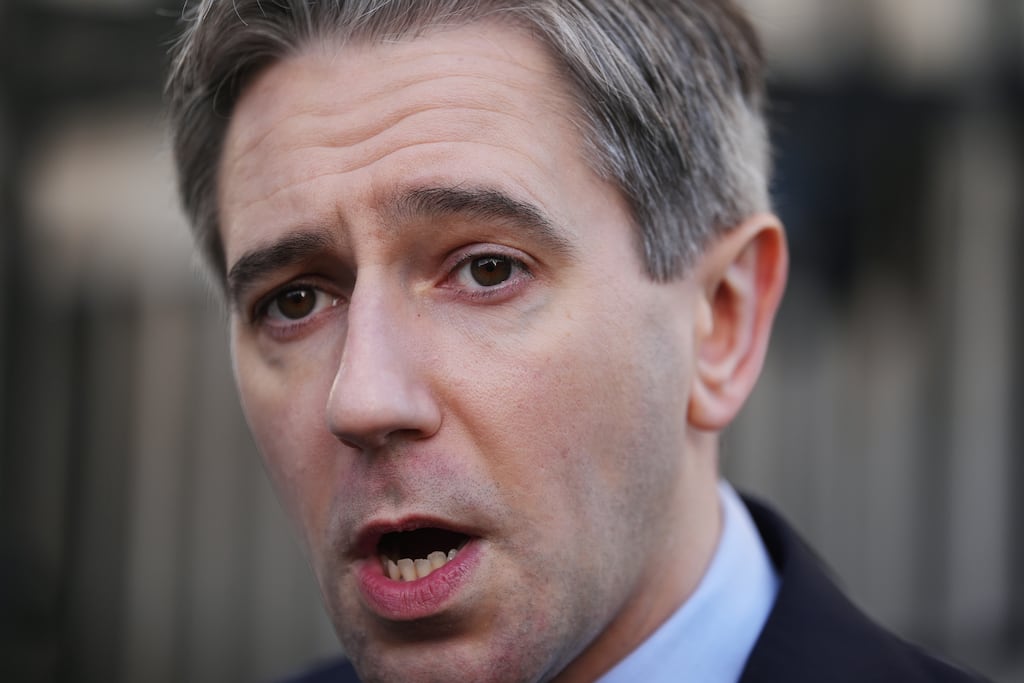In the aftermath of the presidential election, one thing is clear: Fine Gael and Fianna Fáil need new ideas. Neither party had candidates or campaigns articulating a vision for the presidency, or an aspirational theme for Irish society.
It is predictable that some of their post-election musings are attempts to chime with the right.
You don’t need to be an astute observer to forecast that Fine Gael and Fianna Fáil would seek to deflect from campaign shortcomings – although to be fair to Micheál Martin, he has owned his failure.
Nor do you need to be a political scientist to predict the inevitability of parties searching for political capital among those who spoiled their votes. That movement, not Catherine Connolly’s, appears to have a stronger gravitational pull for centre-right parties.
READ MORE
They face a choice: take society’s temperature from the scrawls on ballot papers, or from the young people who participated so positively during the campaign.
Which cohort do Fine Gael and Fianna Fáil wish to appeal to? We are beginning to get some answers.
Firstly, there is Martin’s kite-flying about changing the nomination rules for presidential candidates. He characterised the current process as “the restrictive nature of how one gets on the ballot” and something “the Oireachtas can look at”. Yet many people are well used to encountering ballots devoid of candidates they feel represent their views, but still engage with the democratic process with maturity.
Secondly, there’s Simon Harris hardening his line on immigration with curious timing. Both gestures amount to short-term populism. Speaking like a pundit on RTÉ last Thursday, Harris – whose governments presided over the very immigration policies he is critiquing – declared “our migration numbers are too high”.
[ Simon Harris defends comments that migration numbers in Ireland are too highOpens in new window ]

Martin’s statements will appeal to those who drove the movement to spoil votes, which intersects with the anti-immigrant movement, although plenty of ballot-spoilers are not of that ilk.
Harris’s statements will also appeal to the anti-immigrant movement, although Harris has of course condemned anti-immigration violence. This tightrope is a risky walk with a long way to fall.
Following Harris’s remarks on RTÉ, Martin backed him up. Martin said Ireland should not rule out sending unsuccessful asylum seekers to sites outside of the EU while awaiting deportation to their home countries.
And then last Friday, Harris accused people “particularly on the left” of trying to “shut down the debate” on migration. Over the course of the election campaign, a pattern in Harris’s rhetoric was to attack what he characterised as the “far-left”.
This is disappointing, because it is people on the left, especially People Before Profit, who have undertaken work to support communities during waves of protests led by the far-right. This should be recognised. It is valuable, and not merely rhetorical.
Not at all rhetorical is the threat of the anti-immigrant movement and far-right and conspiracy theorist sphere, and its reality of violence, including political violence.
In September, a woman was arrested in connection with a threat to kidnap Harris’s children, and released without charge. In response to the threats made against Harris, Martin said threatening people in public life was “a fundamental threat to our democracy”.

Harris and Martin cannot pretend to be speaking about immigration nor presidential nomination processes in a vacuum. They know they are speaking in a context. The sharp edge of that context has even been named by the Taoiseach: a fundamental threat to our democracy.
The core rhetoric and belief system of this threat to democracy is racism and bigotry that takes the form of a violent anti-immigrant movement. It holds within it anti-democratic forces and actors.
Such movements can be broad, but within them are extremes. We have seen many such extremes expressed in Ireland since 2018; an arson crime wave, rioting, attacks on gardaí, attacks on politicians and canvassers, racist beatings, intimidation and harassment, fuelled by online rage.
But there are also different shades within movements, and the satellites that orbit them; people who abhor political violence, for example, but who are similarly opposed to immigration. This movement has been working to widen the Overton window on immigration. It is having some success.
Then there are the political parties who claim the centre must hold, yet sometimes subsume the slivers at seemingly softer edges of far-right talking points, partially regurgitating them in either heedless or strategic ways.
[ Are Micheál Martin’s days as Fianna Fáil leader drawing to a close?Opens in new window ]
Heedlessness is unthinking; strategy thinks. Yet Fine Gael and Fianna Fáil’s post-election exploration of strategy sends messages to those who resist the pull of the centre.
On the left, there’s the deflated “here we go – classic!” sense of irritation with Government parties. On the right, it’s, “great, what we’re doing is working!”, while those protesting immigration aren’t going to vote for Fianna Fáil or Fine Gael, viewing them (plus all parties on the left) as traitors.
An urgent conversation Ireland needs to have is on the uncomfortable reality of racism and bigotry in our society, and the playbooks that stoke it. Appealing to right-wing sentiments on migration does not help to “hold” the centre Fine Gael and Fianna Fáil claim to occupy. It just drives some voters leftward and bolsters the right.
If they persist in pursuing such a strategy, Government parties will not attract disaffected voters, but dig a moat around themselves on increasingly eroding soil, until the sides collapse.














